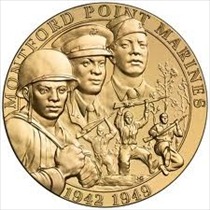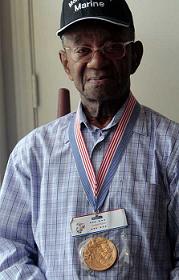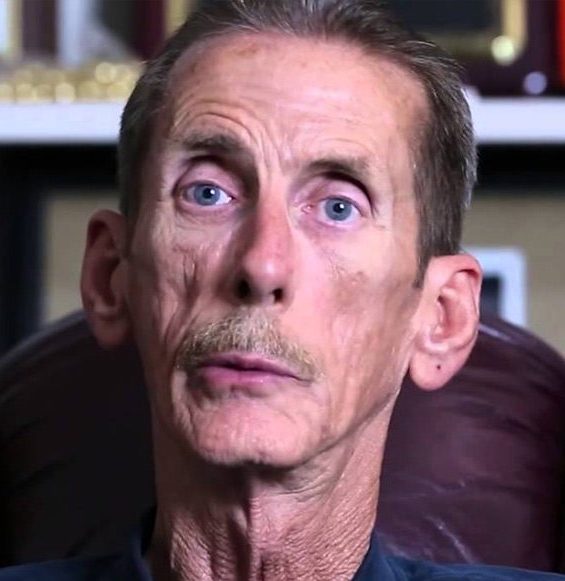
GULFPORT – (AP) David Potts Sr. and 400 other surviving Montford Point Marines, the nation’s first group of black Marines, have been honored at the U.S. Marine Barracks in Washington.
The Marines, all of whom were well into their 80s, were the nation’s first group of black Marines who served in a segregated military during World War II.

The 88-year-old Potts tells the Sun Herald that the Marines dealt with discrimination at home and abroad.
But in Washington, they were greeted by Gen. James F. Amos, commandant of the Marine Corps, congressional leaders and other officials.
“It was quite an honor, but I thought it was a little late, coming after 70 years,” Potts said.
The Montford Marines once totaled 20,000. Potts says he could be the only surviving one from Mississippi. The locals he had joined with are all dead. One of them, John Hall Jr., of Gulfport, died in May.
President Franklin D. Roosevelt in 1942 gave black men the opportunity to serve in the Marines, but they weren’t allowed to train alongside whites.
Potts and the others were trained at Montford Point, N.C.
Potts remembers heading off to war in the Pacific, riding on big ships to get there. He and his fellow black Marines were relegated to sleeping bags placed outside on the decks of the ships because they weren’t allowed in the living quarters.
The Montford Point Marines fought at Okinawa and other battles. Potts was a driver mostly, hauling supplies to battle zones. It was a dangerous job.
“It was only for the pure of heart to serve then,” Potts said. “You had to fight both the system and the Japanese.”
Being home in the U.S. in the 1940s wasn’t easy, either.
When Potts was heading back to North Carolina to continue training following a short leave, he boarded a bus full of military personnel. The driver wouldn’t allow Potts to use a seat and forced him to stand for most of the long trip. Potts said a white sailor offered him his seat.
Potts returned to Gulfport and raised six children and two stepchildren, several whom joined the military or had children who did. He said he had enthusiastically offered them much support in their decisions to enlist.




Be the first to comment